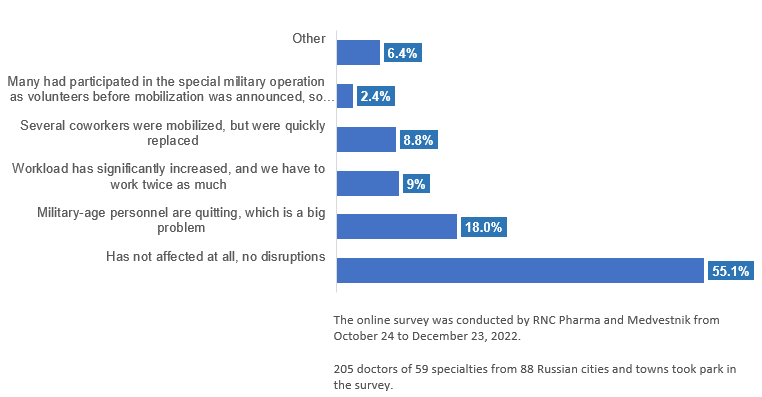Study by RNC Pharma and Medvestnik: More Than 66% of Russian Doctors Say Partial Mobilization Has Practically Not Affected Workplace
More than 55% of Russian doctors do not think mobilization has affected their workplace, according to a survey conducted by the RNC Pharma analyst company and the Medvestnik platform for doctors. Another 8.8% of the respondents say that their mobilized colleagues were quickly replaced, without any disruptions in the work of the hospital. Interestingly, these answer options had statistically significant differences in terms of geography. In particular, doctors in Moscow, Moscow Oblast, and St. Petersburg were more likely to see the quick replacements, while doctors outside those regions were less likely to experience any changes due to mobilization, essentially meaning that the staffing situation in Moscow, Moscow Oblast, and St. Petersburg is noticeably better than in the other regions. 2.4% of the study participants say that some of their coworkers went to work in the military zone as volunteers even before mobilization.
Yet, 18% of the respondents note a number of problems associated with the start of partial mobilization, in particular increasing number of military-age doctors quitting. Some even gave their own answer, saying that family members of those mobilized were quitting as well, probably due to leaving the country. Finally, another 9.3% of the doctors note that the workload “significantly increased” after the start of mobilization, and they had to work “twice as much.” Some respondents complained about an increased workload in another areas, for example, because they had to vaccinate those mobilized in military units.
Fig. How has the start of partial mobilization affected your workplace? (single-answer question)

 Рус
Рус




